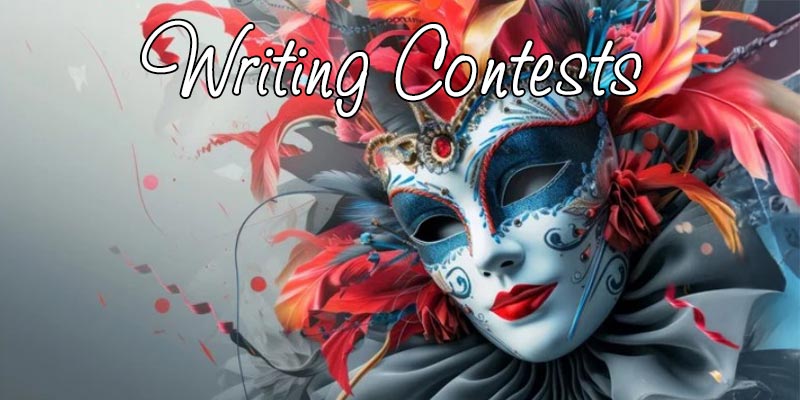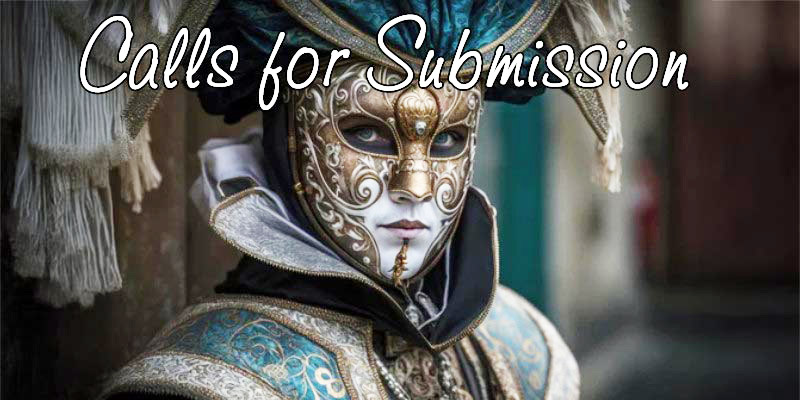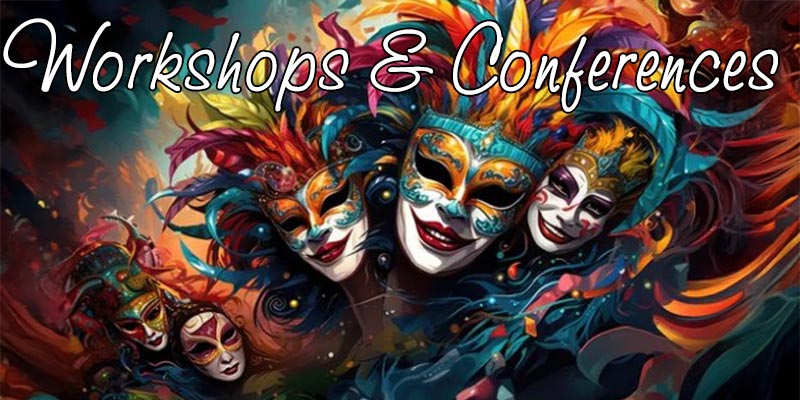
The site for writers of all genre, and the readers who love them. Find what you want to know.
60 Ways to Create and Heighten Conflict

Why Do We Love Stories?
by: Ian Irvine
Stories dominate our daily lives, in books, movies, TV, games, jokes. Newspaper articles are called stories; even songs tell stories; even advertisements. But why do all humans crave stories? For many reasons, including escapism and to learn about life, but most of all to relate to the characters (Cleaver, Immediate Fiction).
Relating to the characters is what makes a story real, but how does this work? Relating means making an emotional connection, and the emotions we’re feeling when we read a story are the emotions of the characters (enhanced by our own lives and experiences). What they feel, we feel. The better the story, the more we lose ourselves in the lives of the characters and the more we become them, through identification.
Identification is why the reader reads and the writer writes. It’s our deepest social need and at the heart of all human interaction. We cannot identify with someone in a story unless their character is revealed to us, and revealing character should be the author’s main purpose. But how do we do it?
The Basics of Story Craft
In its purest form, a story consists of just three elements: conflict, action and resolution (Cleaver). Someone is faced with a problem (conflict) that he must struggle to overcome (action), and he either wins or loses (resolution).
CONFLICT + ACTION + RESOLUTION = STORY
Conflict brings stories to life, though it isn’t important for what it is, but for what it does. What does it do? The answer to this question lies at the very heart of storytelling. Conflict forces characters to act in ways that reveal who they are – and nothing tells us more about characters than how they deal with their troubles.
When conflict exposes who a character really is, the reader is drawn in through identification. The more difficult the character’s choice, the more his true nature will be revealed. In great stories – Romeo and Juliet; Hamlet; Scarlett O’Hara; Frodo; Harry Potter – the heroes are forced to go all the way. The more pressure you put on your character, the more you make him reveal his true, inner self and the more powerfully your readers will identify with him.
So, stories are about adversity. Happiness can be the ending of the story, but it can’t be the story itself. Why not? Because happy characters don’t want to change. Happiness doesn’t force the characters to act and thus reveal themselves and, if the characters are having a good time, the reader is not.
To be forced to change, to act and reveal their innermost selves, characters need to be frustrated, desperate and at the end of their rope. The worse you make it for your characters the better it is for the reader. When the characters give all they’ve got, readers experience it deeply and powerfully.
To create true conflict, two things are needed: a want and an obstacle. Your protagonist must want something, and there must be an obstacle (the antagonist) that’s trying to stop her from getting what she wants (Ahab wants to kill the whale, the whale wants to kill Ahab).
Both the want and the obstacle must be strong and determined. If either is weak, it will be impossible to create a good story, no matter how much effort is put into writing it. A great story is driven by the energy and determination of both the protagonist and the antagonist. To put it another way (Cleaver):
WANT + OBSTACLE (CONFLICT) + ACTION + RESOLUTION = STORY
Conflict is often misunderstood in fiction. A great story can’t be made from everyday conflict (bickering, abuse, arguments, fights etc). A great story requires dramatic conflict, that is, conflict related to the hero’s story goal – either furthering it or blocking it. A dramatic want and a dramatic obstacle are needed to create dramatic conflict.
A dramatic want arises when the character is desperate to make things change. She can’t stand this aspect of her life any longer, and has to act. If she can live with things the way they are, if she can turn away from what she wants and be no worse off, it’s a false want and will only create a false conflict.
A dramatic obstacle is one that is as determined to block or deny the want as the want is driven to deny the obstacle (Frodo is determined to take the ring to Mount Doom, Sauron is determined to stop him). If the character can ignore the obstacle and suffer no harm, it’s a false obstacle and there is no conflict, no drama and no story.
Sometimes the obstacle appears first, and only then does the character realise his want, eg the husband discovers his wife is cheating, the killer stalks the hero, the ghost of Hamlet’s father appears, the kid is abducted by aliens.
AGENTS & EDITORS
- Agents: Knowing When To Hold One and When To Fold
- Copyright Primer, Know Your Rights
- Getting Offers from Multiple Literary Agents
- Landing An Agent Elements Of A Winning Query
- Literary Agents List
- Preditors and Editors
- Publishing, Writing Terms, Acronyms
- Tips for a Successful Editor Appointment
- Want More? Here’s How to Get It
- What NOT to Do When Beginning Your Novel
- Windup for the (Story) Pitch
- Write the Perfect Book Proposal
CALLS FOR SUBMISSIONS
![]()
CALLS FOR SUBMISSIONS MAIN PAGE
- 2026 FEB Calls for Submissions
- 2026 JAN Calls for Submissions
- 2025 DEC Calls for Submissions
- 2025 NOV Calls for Submissions
- 2025 OCT Calls for Submissions
- 2025 SEP Calls for Submission
- 2025 AUG Calls for Submission
- 2025 JUL Calls for Submission
- 2025 JUN Calls for Submission
- 2025 MAY Calls for Submission
- 2025 APR Calls for Submission
- 2025 MAR Calls for Submission
- 2025 FEB Calls for Submission
CHARACTERIZATION
CONFLICT
DIALOGUE
GRAMMAR & FORMATTING
![]()
GRAMMAR & FORMATTING MAIN PAGE
- Achieving 250 Words / 25 Lines Per Page
- And Sammy, Too? Oh, No!
- Changing Double Hyphens to EM Dashes in Word
- Edit Easier
- High Hopes–Avoiding Common Mistakes
- Misused Words
- Navigating In Your Novel
- Proofreaders Marks
- Research Links
- Rules for Writers
- Slang and Jargon Souces
- Tightening Your Manuscript and Trimming the Word Count
JOBS / MARKETS
- 3 Ways to Make Your Non-Fiction Article Pitch Stand Out
- 35 Online Work Ideas to Earn Good Money Whilst Studying
- An Interview with Holly Ambrose
- Beyond the Basics
- Copyright Primer, Know Your Rights
- Finding Markets Fiction and Nonfiction
- Freelance Writing 101
- Getting Offers from Multiple Literary Agents
- How To Market Your Book After You’ve Written It
- How to Write a Novel Synopsis
- How To Write Your Own Press Releases
- Magazine Links
- Making Money As a Corporate Freelancer
- Market News–All Genres
- Need a Clip? Open a Newspaper
- Newspaper Writing Resources
- Publisher’s Websites
- Selling to Children’s Markets
- Submitting to UK Markets
- Syndication 101
- the Power of the Press
- To Specialize, or Not to Specialize?
- Ultimate Guide to Being a Freelancer 2025 Update
- What Are Your Chances of Getting Published?
- Why Article Writing Should Be A Part Of Your Career Development Strategy
- Why E-Books?
- Write the Perfect Book Proposal
- Write Your Way to $1000 a Month
- Youth Writing Markets
PLOTTING
- 3 Ways to Know When to End Your Chapters
- 7 Excellent Plotting Tips from Agatha Christie
- 7 Ways to Add Great Subplots to Your Novel
- 8 Best Writing Tips to Become a Best Storyteller
- Does Your Plot Need a Subplot?
- Love to Write: Here Is How You Can Build Your Career
- Slang and Jargon Souces
- The All Purpose Plot
- Turning Points and Plot Points in Storytelling
- What NOT to Do When Beginning Your Novel
- Writing the Novel by the Numbers
POINT OF VIEW
QUERIES & PROPOSALS
- Agents: Knowing When To Hold One and When To Fold
- Getting Offers from Multiple Literary Agents
- How to Write a Novel Synopsis
- Landing An Agent Elements Of A Winning Query
- Path to Self-Publishing Success
- Publisher’s Websites
- Publishing, Writing Terms, Acronyms
- Science & Science Fiction Writing Organizations
- Submission Tracking
- Surviving a Book Proposal
- Windup for the (Story) Pitch
- Write the Perfect Book Proposal
- Writing a Synopsis & Query Letter
SUBMISSIONS
- Agents: Knowing When To Hold One and When To Fold
- An Interview with Jack Fisher
- Copyright Primer, Know Your Rights
- EBooks-Fears to Possibilities
- How to Write a Novel Synopsis
- Literary Agents List
- Path to Self-Publishing Success
- Publisher’s Websites
- Publishing, Writing Terms, Acronyms
- Science & Science Fiction Writing Organizations
- Selling to Children’s Markets
- Submission Tracking
- Surviving a Book Proposal
- What Are Your Chances of Getting Published?
- Write Your Way to $1000 a Month
- Writing a Synopsis & Query Letter
- Youth Writing Markets
SYNOPSIS
TIP SHEETS & GUIDELINES
![]()
TIP SHEETS & GUIDELINES MAIN PAGE
- Achieving 250 Words / 25 Lines Per Page
- Changing Double Hyphens to EM Dashes in Word
- Copyright Primer, Know Your Rights
- How To Write Your Own Press Releases
- Knowing and Finding Your Voice
- Plan for Success
- Publisher’s Websites
- Science & Science Fiction Writing Organizations
- What NOT to Do When Beginning Your Novel
- Why E-Books?
- Working with a Critique Group
WORKSHOPS & CONFERENCES
WRITING CONTESTS
![]()
ABOUT WRITING CONTESTS
- A Guide to Assessing Writing Contests
- Writer’s Conferences Do You Really Need To Attend?
- Writing Groups List
- 2026 FEB Writing Contests
- 2026 JAN Writing Contests
- 2025 DEC Writing Contests
- 2025 NOV Writing Contests
- 2025 OCT Writing Contests
- 2025 SEP Writing Contests
- 2025 AUG Writing Contests
- 2025 JUL Writing Contests
- 2025 JUN Writing Contests
- 2025 MAY Writing Contests
- 2025 APR Writing Contests
- 2025 MAR Writing Contests





